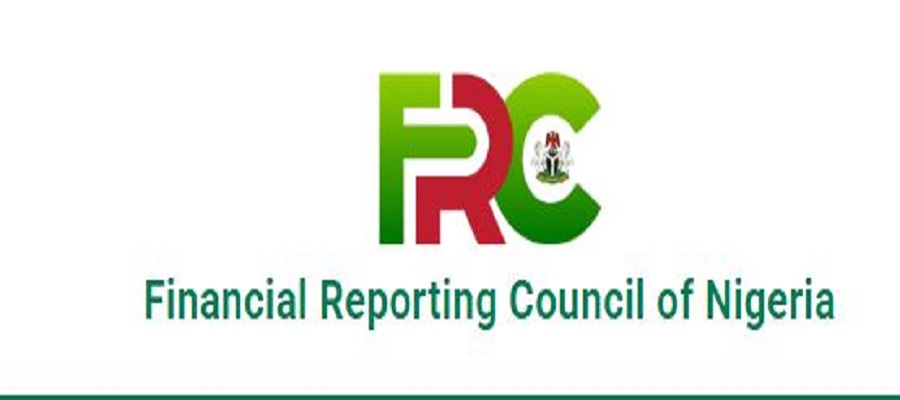General News
Nigeria Cyberspace Neglected, Unprotected Territory- Onifade
![Opeyemi Onifade, president, Information Systems Audit and Control Association [ISACA] Abuja chapter,](https://www.nigeriacommunicationsweek.com.ng/wp-content/uploads/2015/09/Opeyemi Onifade_0.jpg)
As the use of IT becomes pervasive, government, large corporations and private organizations are daily combating cyber security.
In this encounter with Opeyemi Onifade, president, Information Systems Audit and Control Association [ISACA] Abuja chapter, examine the trend. Excerpts.
How Big is Cyber Security Threats in Nigeria
Nigeria as a member of the global society and the country cannot be insulated from the opportunities and threats of globalization. Now, the use of IT is pervasive.
Many organizations in Nigeria are leveraging on the Internet to transact and interact with customers, employees, suppliers and partners. The internet has become imperative to address our collective capacity to respond to the inevitability of cyber threats, especially Advanced Persistent Threats [APT].
Primarily, the purpose of the majority of APTs is to extract information from systems—this could be critical research, enterprise intellectual property or government information, among other things.
Talking about the shift in the motive for hacking (i.e. compromising the security profile of information systems), you will find that there is an evolution in the motivation for attacks.
Motivation for attacks can be explained as being attacked because you are on the Internet and you have vulnerabilities. Or because you are on the Internet and you have information of value; or because your former or current employee seeks financial gain from selling your intellectual property (IP) or because of who you are, what you do or the value of your IP.
And these include state-sponsored attacks and corporate espionage. According to recent research, Cybersecurity is a top global concern. 82% of enterprises are expected to experience a cyber incident in 2015.
Businesses and Government Preparing for the Current Threat
Financial industry players like banks have strengthened their cyber resilience through implementation of adequate technology, adoption of process-oriented good practices and standards, and engagement of right skills and competencies.
However, our government needs to consider a special vehicle to establish the framework to address cybersecurity issues strategically, tactically and operationally.
This is because cybesecurity is a security issue, in fact a national security concern.
We need to understand that we cannot succeed by accident. The cyberspace is now recognized as the fifth domain of warfare in addition to land, air, sea and space.
Unfortunately, in Nigeria, our cyberspace domain is still a neglected and unprotected territory.
Yet, we have come to depend so much on mobile telecommunications, electronic banking and e-commerce for our socioeconomic survival.
In specific terms, there is a need for the government to declare an emergency in the cybersecurity education domain of the country in order to promote cyber security expertise and create a formidable “army” that will be able to ensure effective national cyber defense.
The University Commission needs to update curricula development and accredit information security courses in our tertiary institutions.
Standards Organization of Nigeria needs to domesticate the information security related international standards. NITDA needs to wake up to her responsibilities as the governing body for IT-related security issues in the country.
This is an unfamiliar territory to government bureaucracy and the bureaucrats need to have the humility to collaborate with the professional bodies like ISACA with over 2000 credentialed Nigerian members in the interest of security of the country and wellbeing of her citizens.
Where Does ISACA Fit into all of These?
ISACA provides practical guidance, benchmarks and other effective tools for all enterprises that use information systems.
Through its comprehensive guidance and services, ISACA defines the roles of information systems governance, security, audit and assurance professionals worldwide.
The COBIT framework and the CSX, CISA, CISM, CGEIT and CRISC certifications are ISACA brands respected and used by these professionals for the benefit of their enterprises.
Nigerian banks depend on our members to man their audit, risk, e-business, operations and strategy department. CBN guidelines to the banks require them to use ISACA’s framework to align IT with Business strategy.
To become a member, you are required to register as a professional or student member.
Membership gives you access to vast educational opportunities and international networks.
Members are supported to earn professional credentials upon passing relevant exam and demonstrating verifiable work experience.
ISACA operates three chapters in Nigeria- Abuja, Lagos and Ibadan. There are over 2000 members resident in Nigeria at the last count.
How can ISACA Enable Proven Best Practices to Reduce the Attack Surface, and Mitigate Risks?
For over 40 years, ISACA has promoted trust in, and value from information systems. ISACA has published frameworks and standards related to information assurance, information security, risk management, and corporate governance of IT.
We have been a global thought-leader on these issues.
In 2015, ISACA commenced a skill-based credentialing programme, Cybersecurity nexus CSX to develop and validate cybersecurity competencies.
This programme is in recognition that the most advanced of cyber attacks are done by people and the defense side needs to have adequate competencies to reduce or eliminate opportunities for successful attacks.
ISACA provides access to the knowledge and competencies for cybersecurity in over 180 countries of the world.
ISACA Abuja chapter will be 10 years this year. What are your plans to commemorate this? What are the preparations for the up-coming annual conference?
As part of our contribution to promoting the right use of information technology in the country, ISACA Abuja Nigeria has been hosting annual international conferences. The seventh edition coincides with our 10th anniversary.
This conference theme is “CYBERSECURITY: Aligning Nigeria with the rest of the World”. The Chief Information Security Officer of the City of Atlanta,
USA has accepted our invitation to be the keynote speaker. We are also drawing speakers from other parts of the world and from within the country.
As a social responsible professional body, we shall be donating IT-related books to tertiary institutions and libraries in Abuja.
We have also planned a free seminar for students of tertiary institutions interested in cybersecurity profession.
The platform is meant to provide mentorship to future cybersecurity professionals. To commemorate our 10th anniversary, we will be signing MOU with organizations that believe in our cause to make our cyberspace safe across the country and region.
Nigeria Security Professionals and Requisite Training to Build Strong Core Infrastructure, to Combat Digital Security Threats
According to CISCO, there are over one million unfilled jobs for information security roles worldwide. Another research estimates that more than 35% of enterprises are unable to fill open cyber security positions.
I believe security professionals in Nigeria have not been able to gain the recognition they deserve and so they have not been able to express themselves through hands-on contributions to the economy and national security. Sadly, there is currently an incessant loss of our cyber security professionals to opportunities in the Middle-East economies.
The brain drain will continue until we create an atmosphere to retain these skills. It happened to nursing and medical professionals in the 80’s, it is happening again to our cyber security professionals.
I think there are numerous opportunities for self-development for our professionals, but businesses and all tiers of government must begin to look to our citizens for cyber protection in order to fully engage and truncate the brain drain in the cyber security industry.
I wish to suggest that government agencies and businesses should be involved in sponsoring cybersecurity events for professionals and students.
An example is the cyberlympics organized by ISACA International. President Buhari will need to find a means to drive the cybersecurity agenda for the nation.
Recently the US President issued an executive order on cyber security earlier in the year and the UK government recently made public her National Cyber Security Strategy.
Legislation and Fight Against Security Threats and Cybercrime
Thankfully, the cybercrime bill was passed into law this year and there are attempts by the Office of National Security Adviser to promote a national strategic framework for cybersecurity.
While that is a good step forward, we are still very unserious in providing a legal framework for governing our cyberspace.
I mentioned earlier that our cyberspace is a neglected territory. Our laws should attempt to make Nigeria one of the most secure places to do business.
Until recently, Amazon.com would not ship to Nigeria. Paypal would not do business with Nigeria at all. While these organizations have modified their business models for Nigeria, their service package for Nigeria is still limited.
This means that Nigerians are unable to take full advantage of international e-commerce. For instance, while a Nigerian can pay using the global payment platform, paypal, she cannot receive payment using the same platform.
We need laws that will enable e-business not just punish cyber misdemeanor.
We are hoping that the members of the eight National Assembly will be open to working with experts in non-profit organizations like ISACA to help with research and case studies to make our laws appropriate and relevant to 21st century realities.
What can CISO do to Become very Prominent in Organisations?
The role of a CIO is to create value from the information asset of the organization while a CISO’s role is to preserve the value of the organization’s information asset. Information has become the most important factor of production over land, labour and capital.
Therefore, information security is really about business security. The CEO is the one who will be held accountable for the protection of the most important productive asset of the organization, i.e. the information assets.
He can delegate this responsibility to a CISO but he cannot delegate the accountability. A CISO therefore needs to recognize his role as someone responsible for business resilience and performance. His role is not just to implement controls but also to ingrain the enablers of business strategic outcomes.
General News
NCS to Launch Electronic System for Cash Declarations at Airports

Nigeria Customs Service (NCS) is set to introduce an electronic declaration system to streamline and enhance compliance for travelers carrying cash into or out of Nigeria.

Speaking in an interview with the News Agency of Nigeria (NAN) in Abuja, Abdullahi Maiwada, NCS spokesperson, emphasized that the initiative aligns with efforts to strengthen Nigeria’s anti-money laundering framework and reinforce financial regulations.
“The Nigeria Customs Service (NCS) has announced the deployment of an Electronic-Currency (E-Currency) declaration form as part of its anti-money laundering measures for travelers carrying cash into and out of Nigeria,” NAN reported. The system will require travelers carrying amounts exceeding the legal threshold to declare them before arrival or departure.
Maiwada further explained the process, stating, “We have developed a system where, even before leaving your point of origin, you can scan a QR code, access the form, fill it out, and we will be able to see it from here.”
He noted that the initiative, set for rollout soon, will enhance monitoring and facilitate information sharing with relevant authorities.
Under the Anti-Money Laundering (Prevention and Prohibition) Act 2022 and the NCS Act 2023, travelers carrying over $10,000 (about N15.4 million) or its equivalent in negotiable instruments must declare the funds to Customs authorities.
To boost awareness, the NCS is working with airline operators to inform travelers through onboard announcements and plans to reinstate signage at airports and border points in English and French.
The move comes as part of broader efforts to tighten financial controls following a recent case at the Murtala Muhammed International Airport (MMIA), where Customs officials seized $578,000 from a passenger attempting to evade currency declaration regulations.
General News
Aquaterra Energy Secures Multi-million-dollar well Intervention Contract with Intrepid Energy in Nigeria

Aquaterra Energy, a leader in offshore engineering solutions, has secured a multi-million-dollar, multi-year contract with Intrepid Energy Limited (IEL) to deliver a bespoke subsea well intervention equipment package for a project in Nigeria.

Aquaterra Energy’s turnkey well access package will enable IEL to conduct intervention operations across multiple mature oil wells in the region, supporting enhanced reservoir production.
The contract includes the supply of a complete seabed-to-surface intervention system and package, spanning from the subsea tree to surface intervention equipment.
Key components include Aquaterra Energy’s TRT tieback tooling, which provides production bore and annular access, a lightweight well pressure control system, and an ISO 13628-7 qualified open water intervention riser with an integrated tensioning system. In addition to equipment provision, Aquaterra Energy will also deliver ongoing offshore engineering support throughout the project.
The 7- 3/8” lightweight well access solution, has been specifically engineered for deployment from jack-ups and lift boats. This innovative approach offers a cost-effective and operationally efficient alternative to floating vessels, reducing intervention costs while maintaining high safety and performance standards.
Andrew McDowell, Delivery Director at Aquaterra Energy comments: “Our expertise in offshore engineering allows us to develop tailored intervention solutions that address the operational challenges of subsea well access.
This system has been engineered for efficiency, ease of deployment, and safety, helping IEL optimise intervention activities across Nigeria while reducing costs. By delivering a complete, integrated package, we are simplifying complex operations and enabling operators to maximise production potential.”
Engr Seun Alonge, CEO at Intrepid Energy Limited adds: “Working with Aquaterra Energy marks a significant step forward for our intervention operations in Nigeria. Their specialised technology enhances our ability to execute intervention programmes efficiently, maximising performance across our assets.
By combining Aquaterra’s technical expertise with our deep understanding of the local operating environment, we’re confident this collaboration will enhance production outcomes and create lasting value for our operations in the region.”
The project is set to support intervention operations over multiple years, with Aquaterra Energy providing ongoing technical expertise, with a dedicated team of engineers providing ongoing service support throughout the project.
George Morrison, CEO at Aquaterra Energy: “Delivering reliable and efficient well access solutions for shallow water subsea operations is central to how we support offshore operators.
This collaboration with IEL reinforces our commitment to providing cutting-edge engineering solutions that enhance efficiency and reduce operational costs. With West Africa playing an important role in the global energy sector, we’re proud to continue supporting its offshore industry with our expertise and innovative technologies.”
General News
FG Halts Controversial FRC Dues amid Industry Outcry

Federal government has temporarily suspended the controversial annual dues imposed on public interest enterprises by the Financial Reporting Council (FRC) after fierce opposition from businesses.

Jumoke Oduwole, minister, Industry, Trade, and Investment, announced the decision during a Ministerial Consultative Meeting in Abuja on Wednesday.
The move follows mounting pressure from private sector groups, including the Nigeria Employers’ Consultative Association (NECA) and the Manufacturers Association of Nigeria (MAN), who slammed the Financial Reporting Council (Amendment) Act 2023 for burdening companies with excessive fees.
The Act mandates cumulative annual charges for non-listed entities and imposes a harsh 10% monthly penalty on unpaid dues, compounding until full payment, a provision that sparked widespread backlash.
At the meeting, major industry players like NECA, MAN, the Nigerian Association of Chambers of Commerce (NACCIMA), oil producers, and telecom operators warned that the fees would cripple businesses already struggling in a tough economy.
Oduwole clarified the suspension, stating, “The government has decided to direct the Financial Reporting Council to pause in the implementation of the new annual dues. You know that I am a lawyer, and a suspension request by the organised private sector would be in contravention of legislation duly passed by the National Assembly. A pause is an administrative process simply to review, in line with what we discussed today.”
She assured stakeholders that the halt would last no longer than 60 days, with a technical working group—including FRC officials and private sector representatives—set up to reassess the policy.
“We are a listening administration. The private sector has requested a range from three months to an indefinite suspension. We are not going to do that. So, at the most, 60 days is in my estimate. We are going to set up a technical working group comprised of the FRC and the organised private sector who have formally written in, and this will be reviewed,” Oduwole emphasized.

 News3 days ago
News3 days agoCourt Throws Out Falana’s Fraud Case against Ekeh, Zinox Boss and Others

 E-Financial3 days ago
E-Financial3 days agoHeritage Bank Depositors Seek National Assembly’s Help to Recover Trapped Funds

 Telecom2 days ago
Telecom2 days agoAgain, Labour Fumes, Threatens Shutdown of Telcos over Non-Implementation of 15 Percent Tariff Reduction

 Telecom3 days ago
Telecom3 days agoNokia Unwraps 5G Gateway for Home Internet

 News3 days ago
News3 days agoFG Receives N1Bn Grant from Airtel Africa to Boost 3MTT Programme

 News3 days ago
News3 days agoFG to Halt Solar Panel Imports, Pushes for Local Manufacturing

 E-Business2 days ago
E-Business2 days agoQNET Disassociates From Fraudulent Academy in Abuja, Supports EFCC Arrest

 E-Business3 days ago
E-Business3 days agoSenate Passes Bill to Re-enact NIMC Act















